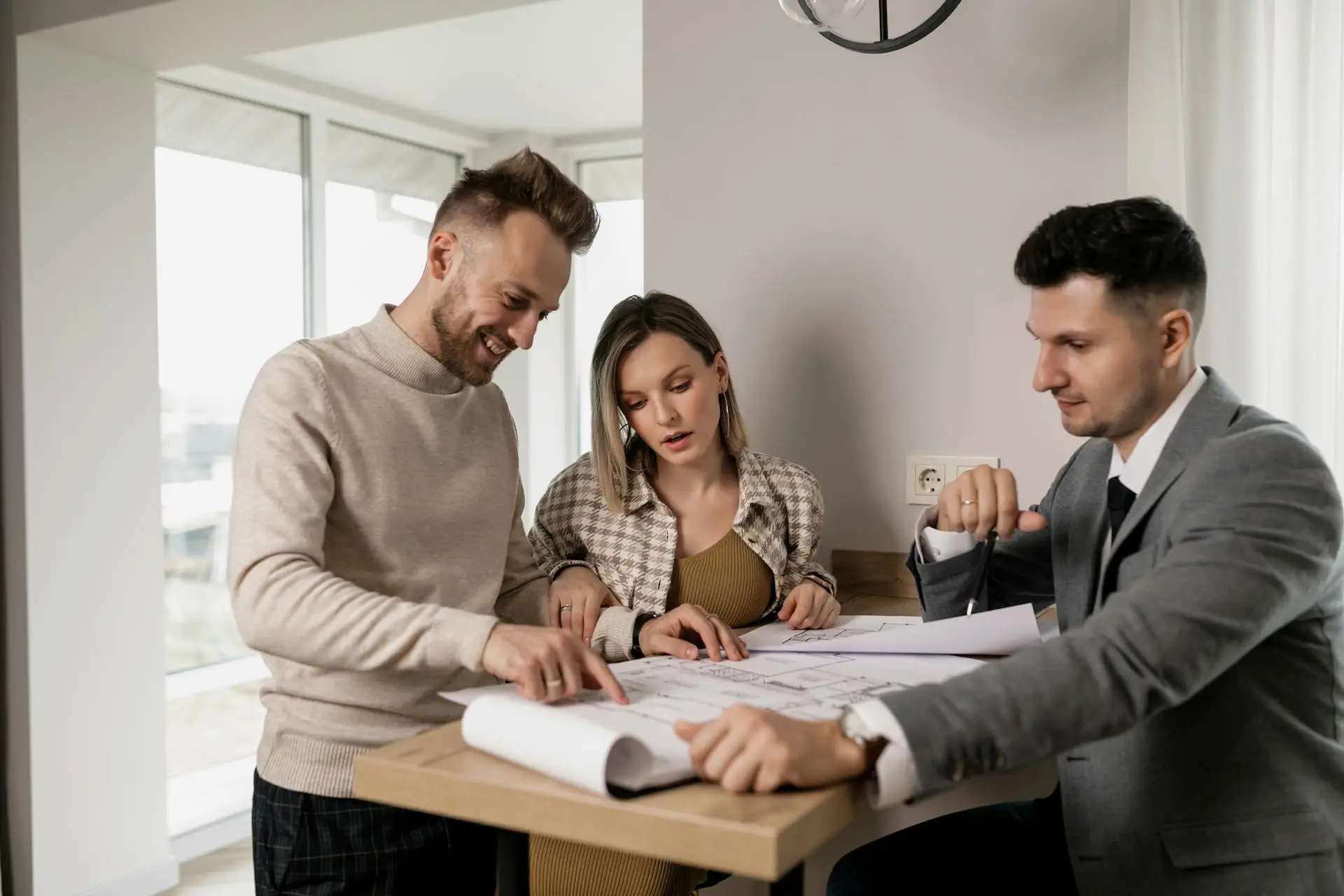
This post was last modified on December 19, 2024.
When you’re preparing for a first-time home buyer meeting, you’ll want to set a clear agenda that addresses their financial readiness and the intricacies of the buying process. Building trust through active listening can greatly impact the conversation, making buyers feel heard and valued. And it’s not just about the meeting itself; the follow-up can be just as important.
Understanding Buyer Needs
Understanding the unique needs of first-time home buyers is essential to providing tailored guidance and support. Begin by uncovering their motivations for purchasing a home. Are they looking for a cozy starter home or planning for a larger space to accommodate a growing family?
Identifying these goals allows you to focus your property search and avoid presenting homes that don’t align with their priorities.
Assessing their financial readiness is equally crucial. Before diving into the market, discuss their financial situation, including their credit score, savings for a down payment, and ability to manage monthly mortgage payments. This not only ensures that they are prepared but also positions you as a trusted advisor in their home-buying journey.
Educate buyers on the advantages of having a substantial down payment, which can strengthen their negotiating power and improve loan terms. Collaborate with financial advisors or mortgage brokers to provide them with clarity about their financial position and explore financing options that suit their circumstances.
Set a Meeting Agenda
Creating a clear meeting agenda is key for maximizing the effectiveness of your first-time home buyer meetings. A well-structured agenda helps you stay focused on your meeting objectives and guarantees efficient time management.
By outlining key discussion points, you can guide the conversation and keep your buyers engaged. Incorporating elements of effective communication skills can also enhance your interactions, making certain that buyers feel heard and understood.
Here’s what to include in your agenda:
- Introduction: Briefly introduce yourself and set the tone.
- Objectives: Clearly state the goals of the meeting, such as understanding buyer needs or discussing financing options.
- Key Topics: Outline specific areas to cover, like market trends, home inspections, or the buying process.
- Q&A Session: Allow time for buyers to ask questions, ensuring they leave feeling informed and confident.
Build Trust and Rapport
Building trust and rapport with first-time home buyers is key to creating a positive and productive relationship. When you approach these meetings with openness and honesty, you’re laying the groundwork for effective communication.
Start by sharing your expertise and experiences, as this not only builds confidence but also reassures buyers that they’re in capable hands. Understanding the differences between a Buyer’s Agent and Listing Agent can also help them feel more secure in their decisions.
Make it a point to understand their needs and concerns. Ask questions that encourage them to express their thoughts and feelings about the home-buying process. This illustrates that you value their input and are genuinely invested in their experience.
Being transparent about the buying process, including potential challenges and solutions, is important. It shows you’re not just trying to make a sale; you’re committed to helping them make informed decisions.
Additionally, share testimonials or success stories from previous clients. This not only boosts your credibility but also reinforces the trust you’re trying to establish.
Master Active Listening
Active listening is a key skill that can transform your meetings with first-time home buyers into meaningful exchanges. By honing this skill, you’ll not only convey understanding but also build trust through emotional intelligence and nonverbal communication.
Developing strong client relationships is vital for success in real estate, as building a strong client base greatly impacts your overall performance. Here are some techniques to enhance your active listening:
- Maintain eye contact to show genuine interest and engagement.
- Nod occasionally to acknowledge their feelings and encourage them to share more.
- Paraphrase key points to demonstrate understanding and clarify their concerns.
- Ask open-ended questions to invite deeper discussions and explore their motivations.
These techniques will help you connect on a personal level, allowing buyers to feel heard and valued.
By integrating these strategies into your meetings, you’ll create an environment where first-time home buyers feel comfortable expressing their concerns and aspirations.
This not only improves your relationship with them but also leads to more productive conversations.
Provide Tailored Advice
Once you’ve established a strong connection through active listening, the next step is to provide tailored advice that meets the unique needs of first-time home buyers. Each buyer’s situation is different, and your guidance should reflect their specific circumstances.
Start by discussing current market conditions and trends. Explain how these trends can influence their buying decisions, such as the impact of rising interest rates or shifts in neighborhood desirability.
Next, explore financing options. Many first-time buyers may not be aware of the variety of loans available, from conventional mortgages to FHA loans. Clarify the benefits and drawbacks of each option, and help them understand what might work best for their financial situation. By doing so, you empower them to make informed decisions.
Educate Clients on the Home Buying Process
Guiding clients through the home buying process is essential to making the experience less overwhelming. Breaking it into clear steps ensures they understand what to expect at each stage.
It’s important to ensure they are aware of the potential costs involved, such as closing costs, which include various fees that can impact their overall budget.
Here’s a structured approach to help your clients:
- Assess Their Financial Situation: Ensure clients review their budget, savings, and credit score to determine what they can afford before starting their search.
- Explain the Home Search Process: Guide them on how to search effectively, focusing on homes that meet their needs and budget. Help them understand the importance of location, home size, and long-term value.
- Schedule Property Inspections: Once they’ve found a home they’re interested in, assist with scheduling a professional inspection to check for any hidden issues.
- Discuss the Offer Process: Walk them through making an offer and what to expect during negotiations, explaining contingencies, and how to handle counteroffers.
Implement Follow-Up Plans
After you’ve completed the initial steps of the home buying process, it’s time to send email reminders. These can help your client keep track of important deadlines, such as mortgage applications and inspection dates. By setting clear reminders, you’ll help them stay organized and avoid any last-minute surprises.
Also, don’t underestimate the power of feedback requests. After each meeting or important milestone, ask your clients for their thoughts. This not only shows that you value their opinions but also allows you to address any concerns before they escalate.
Frequently Asked Questions
What Documents Should I Ask First-Time Home Buyers to Bring to the Meeting?
As a real estate agent, it’s important to ask your first-time home buyers to bring essential documents such as their credit report, proof of income, and bank statements. Having these organized ahead of time will help you assess their financial readiness and ensure a more efficient and productive meeting.
How Long Should the Initial Meeting Last?
The initial meeting should typically last about one hour. This timeframe aligns with buyer expectations, allowing you to cover key topics thoroughly while keeping the conversation focused and efficient for a productive discussion.
What if the Buyer Feels Overwhelmed During the Discussion?
If you notice the buyer feeling overwhelmed, acknowledge their concerns. Encourage open dialogue about stress management techniques, like taking breaks or prioritizing questions. This approach builds trust and helps ease their anxiety during the discussion.




